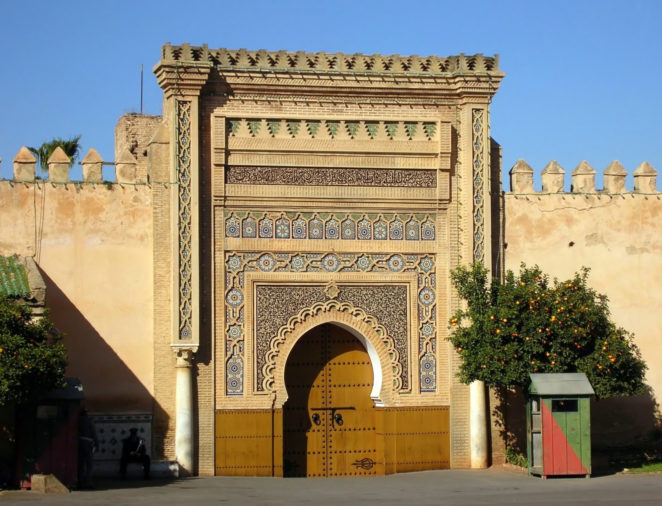
The historic city of Meknes in Morocco was declared a World
Heritage Site by UNESCO in 1996.
Meknes is a well-preserved example of a 17th
century capital city in the region of the Maghreb (north-west Africa). It was
originally founded as a military settlement in the 11th century but
Moulay Ismail (1672-1727), the founder of the Alawite dynasty, made Meknes his
capital city and carried out many reconstructions and additions.
However, the main reason for visiting Meknes is to admire
the imperial city that Moulay Ismail built in the Hispano-Moorish style. The
extensive area is surrounded by high walls that are pierced by monumental
gates. Within the walls are the palace, with its large stables, a military
academy, water storage cisterns and vast granaries.
Near the gates can be found a number of “fondouks” or inns
that specialised in particular crafts or trades, such as the Fondouk Hanna that
dealt solely in henna and the Fondouk Lihoudi where Jeewish craftsmen worked.
The architecture is notable for the harmonious blending of
Islamic and European styles.
No comments:
Post a Comment